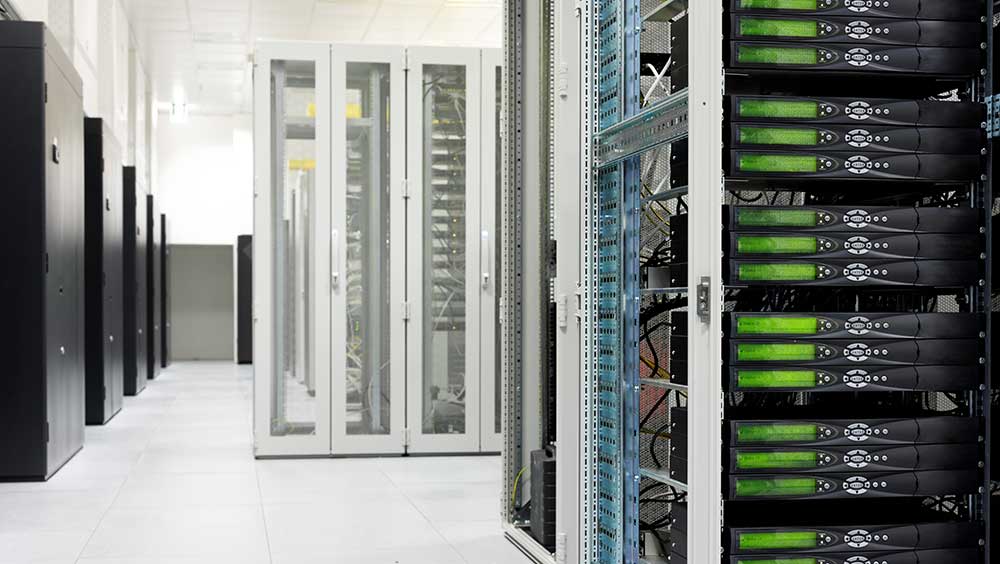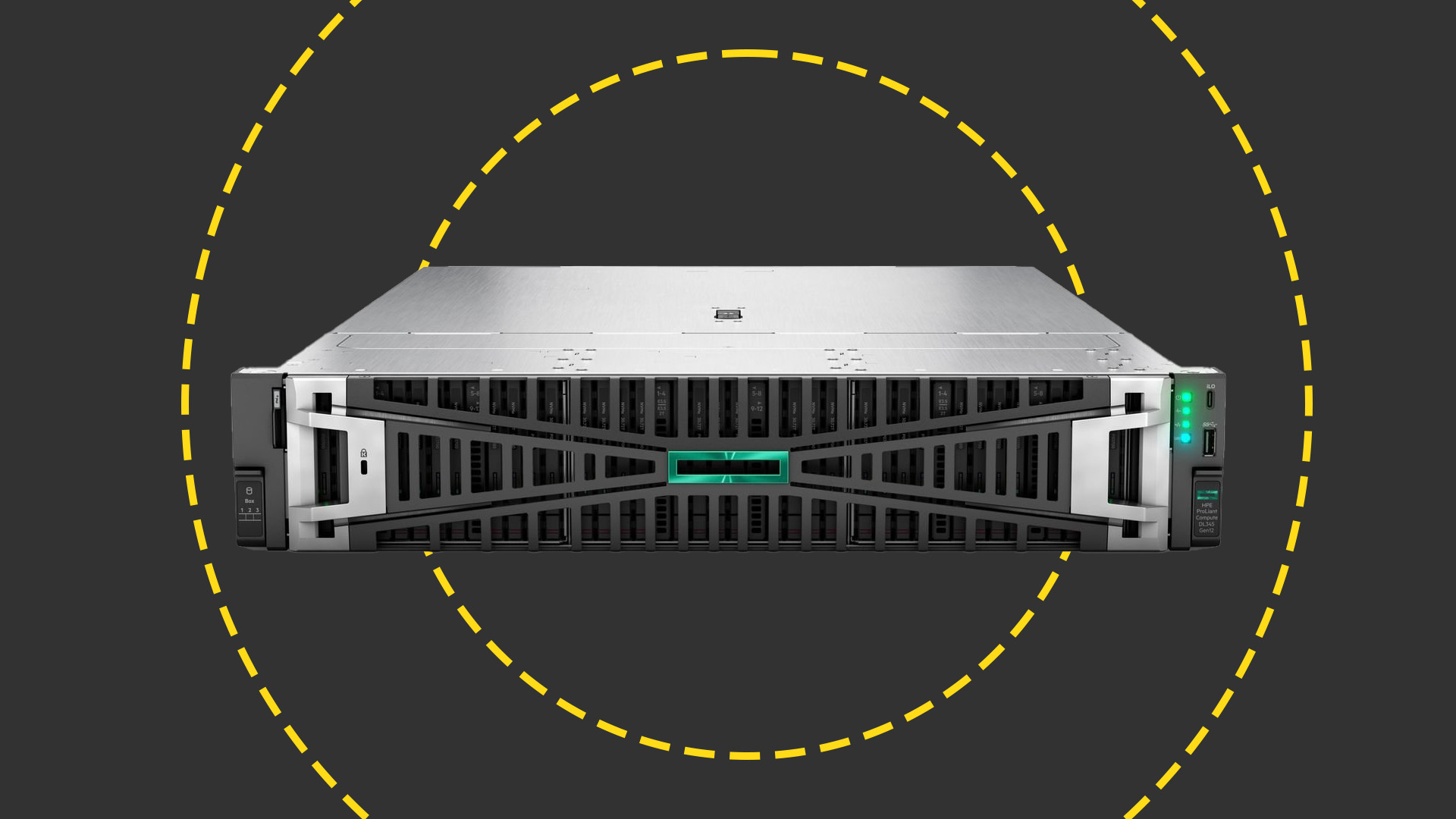5 things to consider when selecting your next online storage provider
Learn what factors go into making a cloud storage provider’s data centre trustworthy enough for your files


Sign up today and you will receive a free copy of our Future Focus 2025 report - the leading guidance on AI, cybersecurity and other IT challenges as per 700+ senior executives
You are now subscribed
Your newsletter sign-up was successful
More and more individuals and businesses are turning from traditional hard disks to cloud storage. The cloud provides more flexibility, scalability to meet the demand of growth, and integration with a limitless variety of apps and services.
If you’re considering making the switch to cloud storage, it’s critical that you choose your provider carefully. Cloud storage can only be as good as the data centres where your data resides, and the quality of providers’ data centres varies widely. Server technology has improved rapidly in the past decade, so a centre that was top-tier in 2010 won’t cut it anymore if the owner hasn’t been making continuous upgrades.
At the end of the day, getting the right cloud storage provider impacts everything from how much you’ll pay, what level of security you’ll have, and whether you can rely on your files to be accessible when you need them. So, let’s take a closer look at five things you need to consider when choosing an online storage service.
1. Location, location, location

To some extent, the whole point of the cloud is that your data can be located anywhere in the world and you will still be able to access it. But in reality, location is one of the most important things to think about when choosing a cloud storage provider.
In general, the closer you are to the data centre where your files are held, the quicker it will be to transfer data back and forth. You might not notice a difference of milliseconds, but it can be critical for business applications where time is of the essence. For example, financial data needs to be delivered nearly instantaneously, while online shopping relies on speedy data delivery to customers.
Location also matters for the simple fact that some places are more prone to natural disasters than others. Store your files in a data centre on a fault line or in an area with high risk of hurricanes at your own risk.
On top of that, with more countries imposing data access and privacy laws, location matters for legal reasons. If you’re worried about governments taking your data or having it used without your permission, make sure the country your data centre is in honours privacy with its laws.
Sign up today and you will receive a free copy of our Future Focus 2025 report - the leading guidance on AI, cybersecurity and other IT challenges as per 700+ senior executives
2. Security
Cybersecurity is quickly emerging as one of the most important issues of our time. The number and reach of hackers is growing quickly, and threats aren’t limited to individuals looking to ransom your files—governments and enterprise-scale companies are also actively engaged in cyberespionage.
A data centre that’s weakly secured can be a potential point of entry for attackers to get to your data. Make sure that the building where your files reside is generously equipped with physical protection, including access controls, video cameras, and 24/7 monitoring by professional security teams.
The servers themselves should also be closely monitored for suspicious network activity around the clock. Ideally, your provider will have a security information and event management (SIEM) system and a team of cybersecurity experts to detect threats before they can be embedded in the network. Of course, it’s also essential to make sure that the server network is kept up to date with antivirus software and airtight firewalls.
3. Power & efficiency

It’s easy to take for granted that your data centre will always have the power it needs to keep the lights on and the servers running. But what happens if the local power plant is taken offline for a few hours or the electrical lines are damaged in a storm?
In that case, it’s critical that your cloud storage provider has a plan for backup power. An unexpected shutdown can be much more damaging than just taking your file offline for a short time—it can also damage the servers and cause irreparable data loss.
Your storage provider should have emergency generators on-site at the data centre at the very least. An uninterruptible power supply (UPS) and n+1 redundancy for all mission-critical components is even better. This redundancy should be maintained as the data centre grows over time.
Power is also important from the perspective of environmental sustainability. Data centres have a significant carbon footprint. This is especially important for businesses that pride themselves on sustainability initiatives and environmental responsibility.
A data centre’s efficiency is best measured by its power usage effective (PUE), which is a measurement of how much of the energy the data centre uses is directly consumed by its IT equipment. A lower PUE signifies a more energy-efficient facility, which means a smaller carbon footprint.
4. Connectivity
Connectivity with other data centres and with the global Internet are critical to a data centre’s functioning. Ideally, your storage provider will have several data centres in a single region. If they’re all connected, your data can be seamlessly transferred to deal with disruptions like natural disasters or power outages. Even better, that connectivity will extend to data centres spread across multiple regions.
5. Expertise

More than 70 percent of data centre downtime is caused by human error. That’s a staggering figure that demonstrates just how essential it is to ensure that your data is in the hands of experienced professionals.
There’s no single way to evaluate whether a cloud storage provider truly has the expertise it claims. But, you can dig deeper by looking for certifications from independent auditors, such as Uptime Management, and industry trade groups. You should also consider what pathways a company has in place for training and retaining its employees. The better a storage provider is at keeping highly skilled IT techs, the more likely it is that your data is in good hands.
The data centre where your files are stored makes a huge difference in the quality of your cloud experience. By considering these five factors, you can better evaluate cloud storage providers and find the right partner to host your data for the long term.
Désiré has been musing and writing about technology during a career spanning four decades. He dabbled in website builders and web hosting when DHTML and frames were in vogue and started narrating about the impact of technology on society just before the start of the Y2K hysteria at the turn of the last millennium.
Then followed a weekly tech column in a local business magazine in Mauritius, a late night tech radio programme called Clicplus and a freelancing gig at the now-defunct Theinquirer, with Mike Magee as mentor. After an eight-year stint at ITProPortal.com, where he discovered the joys of global techfests and transformed the publication into one of the biggest tech B2B independent publishers, Désiré moved to TechRadar Pro where he has been the editor for nine years.
He has an affinity for anything hardware and staunchly refuses to stop writing reviews of obscure products or cover niche B2B software-as-a-service providers. He is an avid deal hunter and can be found lurking around on various deals forums.
-
 HPE ProLiant Compute DL345 Gen12 review
HPE ProLiant Compute DL345 Gen12 reviewReviews The big EPYC core count and massive memory capacity make this affordable single-socket rack server ideal for a wide range of enterprise workloads
-
 What is a vector database?
What is a vector database?Explainer Storing data as mathematical values provides critical functionality for ML and AI
